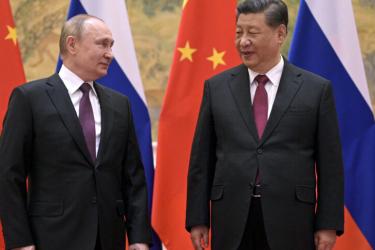Marty Hart-Landsberg — There is a lot of talk lately about the federal budget, with Democrats and Republicans arguing over whether to raise the debt ceiling. But you know what they never argue about: financing the military.
US imperialism
Jase Short — Moscow is not in conflict with the imperial powers of the West because it represents an alternative, but because it wants to play the game, too.
PLM statement on the Balikatan exercises and the US military plans in the region
Michael Pröbsting — Politicians of Western governments never tire of asserting that aid from the US and EU for Ukraine is “unprecedented”.
Chris Slee — Even those who deny that Russia is an imperialist power should recognise that the Russian invasion of Ukraine was a gift to US imperialism and that peace negotiations will only succeed if Russia ends its invasion.
Steve Ellner — Two conflicting leftist positions on Latin America’s wave of progressive governments known as the Pink Tide have become increasingly well-defined over the last two decades.
Michael Pröbsting — Relations between Great Powers cannot be understood in isolation but rather have to be viewed in the context of fundamental class contradictions within a given historical stage of a mode of production.
Howie Hawkins, a retired Teamsters union warehouse worker, former US Green Party presidential candidate and ecosocialist, discusses the formation of the Ukraine Solidarity Network (US) and the challenges of building solidarity with Ukraine while opposing US imperialism.
John Carl Baker — Ukraine aid, like the war itself, is a point of contention on the international left. Supporters see aid as essential for Ukraine’s defense against an imperialist invader. Skeptics regard it as a giveaway to the war industry at best, a fig leaf for the US empire at worst. The dilemma is that both sides have a point.








